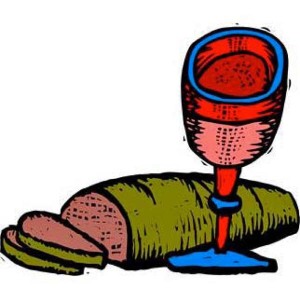On Mondays, I answer questions frequently asked by those considering a return to the Catholic Church. How do I know this stuff? I was away for more than 30 years myself, and am the co-author of When They Come Home: Ways to Welcome Returning Catholics, a book for pastors and parish leaders interested in this ministry.
I was raised Catholic. I didn’t understand the whole “true presence” thing at communion then, and I’m still not sure what it means.
Catholics believe that we are spiritually nourished in many ways during Mass—in the reading of the Word, in the presence of the congregation and the priest, and, most importantly, in the celebration of the Eucharist. We believe that the bread and wine are transformed into the body and blood of Christ, even though the outward appearances of the bread and wine do not change. This glorious transformation—known as transubstantiation—occurs during the priest’s consecration.
Communion brings us closer to God and strengthens us as we go out and share his Good News with the world. The Eucharist is so important to our spiritual  nourishment and continuing conversion that we are required to receive it at least once per year at Easter and are strongly urged to ensure that we are in a state of grace so that we may receive it at every Mass. This is why excommunication is seen as such a serious situation. It prohibits a Catholic from receiving this sacrament.
nourishment and continuing conversion that we are required to receive it at least once per year at Easter and are strongly urged to ensure that we are in a state of grace so that we may receive it at every Mass. This is why excommunication is seen as such a serious situation. It prohibits a Catholic from receiving this sacrament.
If you’ve been away from Church for a while, it may be your memory of the Eucharist that is tugging at your soul to come back. Two of my writer friends were cradle Catholics, then left for evangelical non-denominational churches. One has been away for about ten years; the other, more than thirty. They’re both happy where they are today. But in e-mail exchanges about faith and rites and traditions, both have written longingly of the Eucharist. There’s a special connection with Christ in the sacrament that’s difficult, perhaps impossible, to get out of your soul.